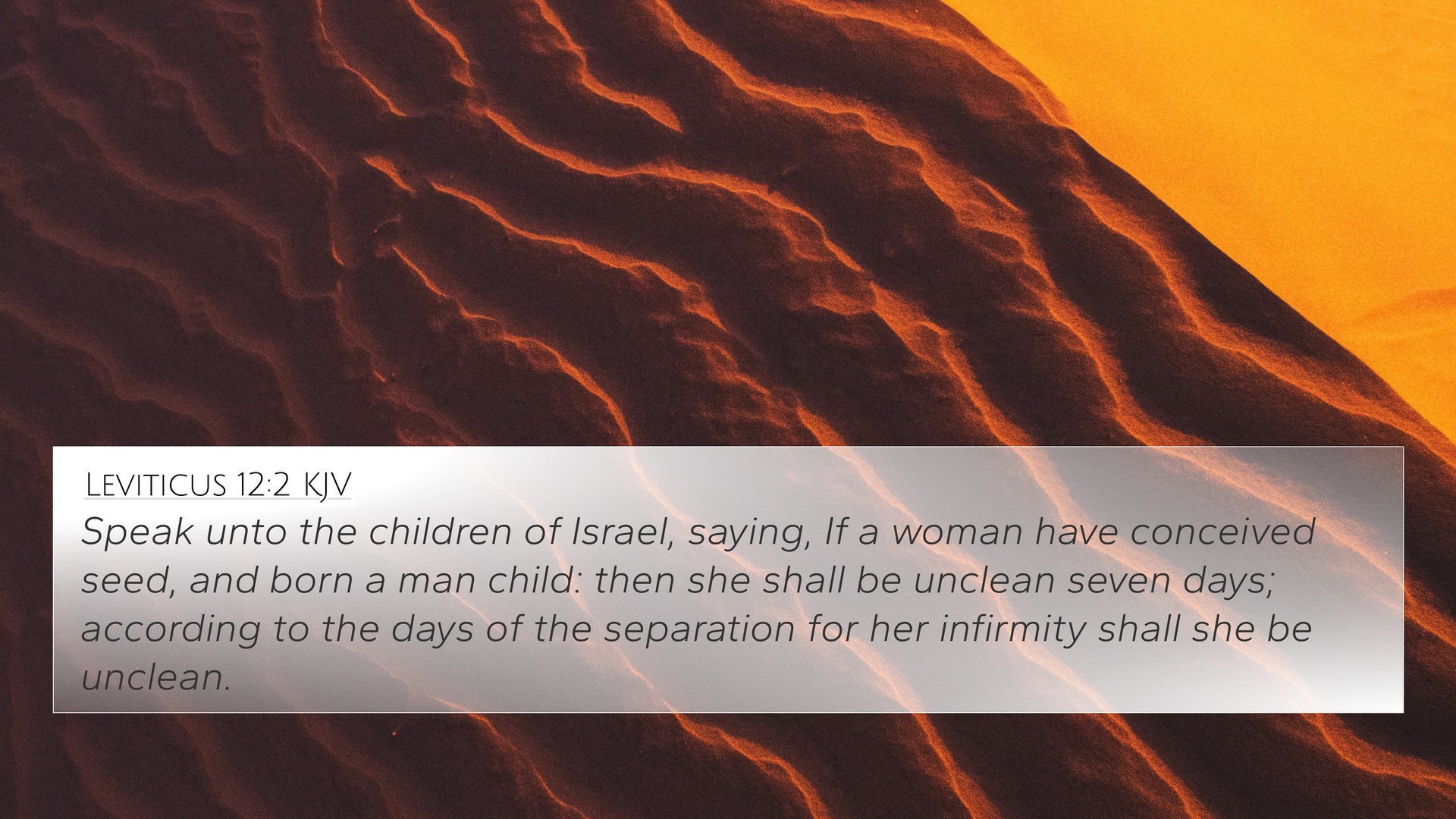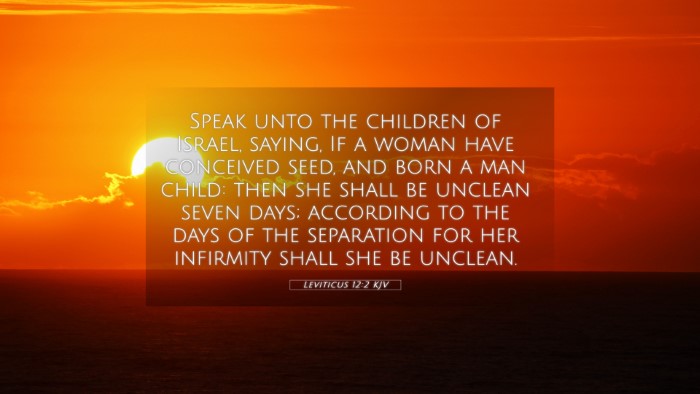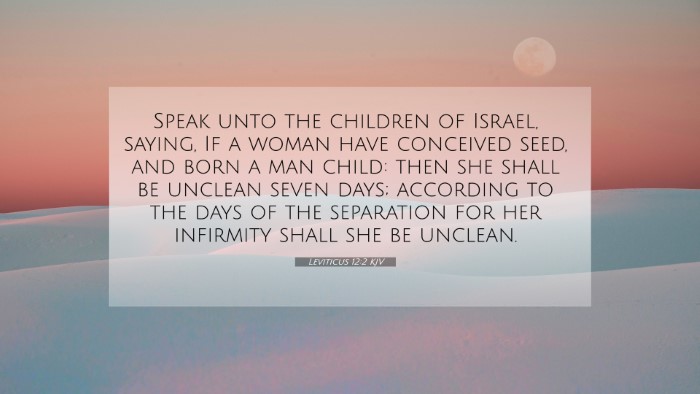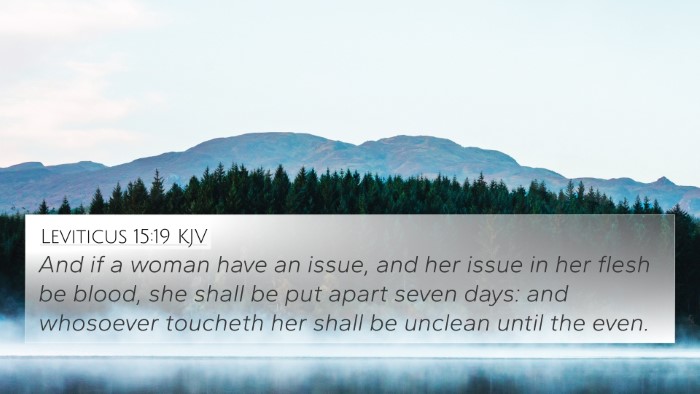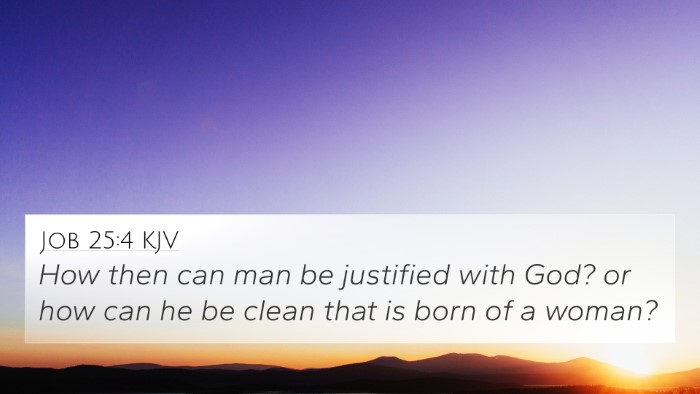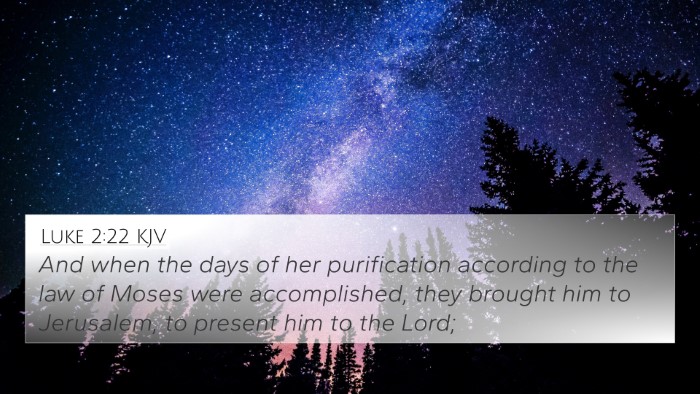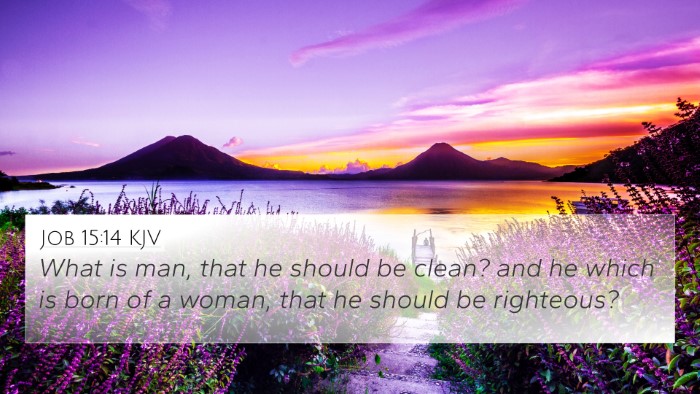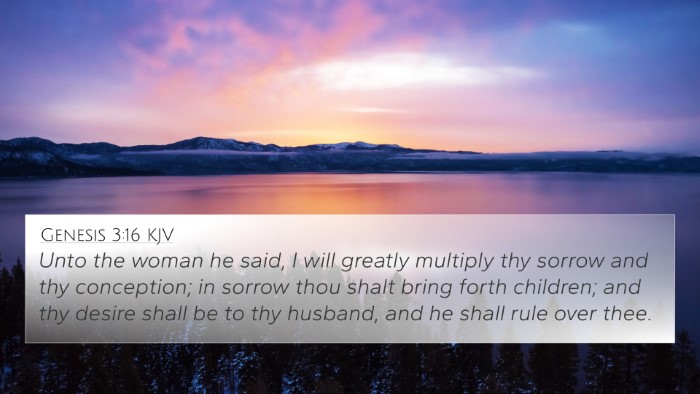Understanding Leviticus 12:2
Leviticus 12:2 states, "Speak unto the children of Israel, saying, If a woman have conceived seed, and born a man child: then she shall be unclean seven days; according to the days of the separation for her infirmity shall she be unclean." This verse introduces the laws regarding a woman’s purity after childbirth, reflecting both cultural and theological significance in ancient Israelite society.
Literal and Historical Context
Matthew Henry provides insight into the importance of childbirth within the Israelite community. The regulations surrounding maternal purification are indicative of both health and ceremonial law. The specific duration of impurity highlights a necessary period of rest and rejuvenation for the mother, delineating a time for her physical recovery post childbirth.
Albert Barnes emphasizes the need for physical and spiritual cleanliness in worship. This separation period also symbolizes the broader spiritual principles of holiness and the need to prepare oneself before standing before God, which was paramount in the Israelite faith.
Adam Clarke notes that the unclean status following childbirth is not a reflection of any moral failing but rather part of the divine order for health and purity in community life. It reinforces the notion that childbirth, while a joyous event, also comes with physical and spiritual implications that must be respected according to the Law.
Thematic Connections
This verse connects deeply with themes of purity and holiness in the Bible. Here are some related Bible verse cross-references:
- Leviticus 11:44-45 - Establishes the principle of holiness among God's people.
- Numbers 19:11-13 - Discusses the concept of being unclean and the necessity of purifying oneself.
- Psalms 51:5 - Reflects on the nature of sin and the inherent impurity of humanity, linking back to purification laws.
- Matthew 1:18-25 - The story of Jesus' birth shows another dimension of birth and purity in relation to divine purposes.
- Luke 2:22-24 - Mary and Joseph present Jesus at the temple, adhering to the purification law.
- 1 Peter 1:16 - Reiterates the call to holiness, stemming from the Old Testament laws.
- Ephesians 5:26 - Emphasizes the cleansing aspect of the Word of God, paralleling the theme of purification.
Inter-Biblical Dialogue
The laws in Leviticus resonate through both the Old and New Testaments, establishing a dialogue on purity and holiness. Here are some ways to explore connections between Bible verses:
- Linking Bible scriptures: Explore how purification is addressed in the New Testament, especially in light of Jesus' sacrifice.
- Bible verses that relate to each other: Cross-reference the purification practices outlined in Leviticus with New Testament insights on spiritual rebirth.
- Comparative Bible verse analysis: Consider how the concept of being set apart for God is discussed in both contexts.
Practical Application
Understanding the implications of Leviticus 12:2 can aid in grasping the broader biblical narrative about holiness and community health. The spiritual significance of these laws extends into Christian teachings about sanctification and the importance of personal purity.
Using tools for Bible cross-referencing can enhance one’s study, revealing deeper meanings and connections. For those interested in a detailed cross-reference between Gospels or Old and New Testament themes, resources like a Bible concordance or a Bible cross-reference guide can be invaluable.
Conclusion
Leviticus 12:2 serves as a vital verse illustrating God’s provision for communal and individual purity through ceremonial laws. The understanding of these texts, both in their historical context and through modern interpretations, allows believers to connect with the timeless principles of holiness as outlined throughout Scripture.
